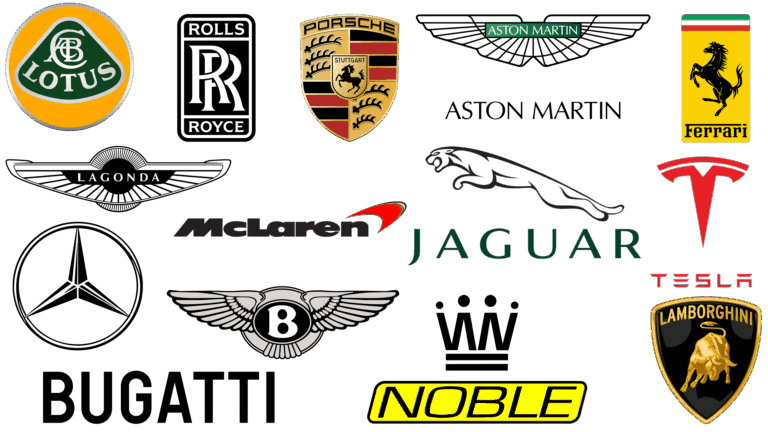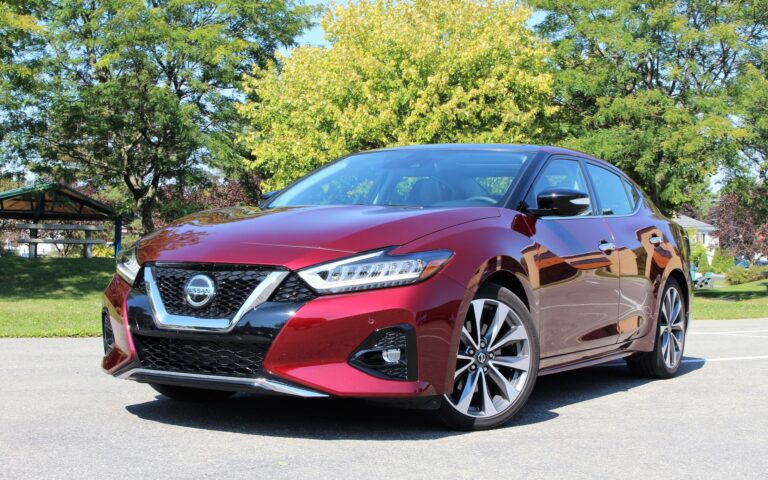Best Car Tire Brands: Your Ultimate Guide to Choosing the Right Rubber
Best Car Tire Brands: Your Ultimate Guide to Choosing the Right Rubber cars.truckstrend.com
The tires on your vehicle are its only point of contact with the road, making them arguably the most critical component for safety, performance, and comfort. Far from being mere rubber circles, modern tires are feats of engineering, designed to optimize grip, handling, fuel efficiency, and durability under a myriad of conditions. Choosing the "best" car tire brand isn’t a one-size-fits-all decision; rather, it involves understanding your specific driving needs, vehicle type, and the unique strengths of various manufacturers. This comprehensive guide will navigate the complex world of car tires, helping you make an informed decision that enhances your driving experience and ensures peace of mind on every journey.
The Unseen Heroes: Why Tire Choice Matters
Best Car Tire Brands: Your Ultimate Guide to Choosing the Right Rubber
Before diving into specific brands, it’s crucial to grasp the profound impact tires have on your vehicle. The right tires can:
- Enhance Safety: Providing optimal grip for braking, accelerating, and cornering, especially in adverse weather.
- Improve Performance: Delivering responsive handling, precise steering, and a comfortable ride.
- Increase Fuel Efficiency: Low rolling resistance tires can significantly reduce fuel consumption.
- Boost Durability: Quality tires last longer, reducing the frequency and cost of replacements.
- Reduce Noise: Advanced tread designs can minimize road noise, contributing to a quieter cabin.

Understanding these benefits underscores why investing in the best car tire brands, tailored to your needs, is not just an expense but a critical investment in your vehicle’s overall functionality and your personal safety.
Decoding Tire Performance Metrics
To truly evaluate tire brands, it’s essential to understand the key performance metrics that differentiate them:
- Treadwear: Indicated by a Uniform Tire Quality Grading (UTQG) number (e.g., 400). Higher numbers generally mean longer-lasting tires.
- Traction: Graded A, B, or C, with A being the best. This measures a tire’s ability to stop on wet pavement.
- Temperature Resistance: Graded A, B, or C, with A indicating the best resistance to heat buildup, crucial for high-speed driving.
- Speed Rating: An alphabetic code (e.g., H for 130 mph, V for 149 mph) indicating the maximum safe speed the tire can maintain.
- Load Index: A numerical code indicating the maximum weight a tire can support.
- Rolling Resistance: A measure of the force required to keep a tire moving. Lower resistance improves fuel economy.
- Noise Level: While not a standardized rating, many reviews and manufacturers highlight a tire’s quietness.


Understanding these metrics empowers you to compare tires beyond just their brand name, focusing on the specific performance attributes that matter most to you.
Key Considerations When Choosing a Tire Brand
Selecting the ideal tire brand involves a holistic assessment of your driving environment and preferences:
- Vehicle Type: Sedans, SUVs, trucks, sports cars, and electric vehicles each have specific tire requirements. SUVs and trucks often need tires with higher load capacities and aggressive treads, while sports cars demand performance-oriented tires with superior grip.
- Driving Conditions & Climate:
- All-Season Tires: A versatile choice for most climates, offering a balance of performance in various conditions.
- Summer Tires: Designed for optimal grip and handling in warm, dry, and wet conditions. Not suitable for snow or ice.
- Winter Tires: Feature specialized rubber compounds and tread patterns for superior traction on snow and ice.
- All-Terrain/Mud-Terrain Tires: For off-road enthusiasts, offering robust construction and aggressive treads.
- Budget: Tire prices vary widely. While premium brands offer advanced technology and performance, excellent value can also be found in mid-range options.
- Driving Style: Aggressive drivers might prioritize grip and handling, while those seeking comfort will focus on ride quality and noise reduction.
- Warranty and Customer Service: Look for brands offering strong warranties (e.g., treadwear warranties) and reliable customer support.
The Titans of Rubber: Best Car Tire Brands
Based on innovation, performance, durability, and consumer satisfaction, here are some of the best car tire brands across various segments:
Top-Tier / Premium Brands: Uncompromising Performance
These brands are synonymous with cutting-edge technology, superior performance, and longevity, often coming with a higher price tag justified by their quality.
- Michelin: A global leader, Michelin is renowned for its innovative designs, exceptional wet and dry grip, fuel efficiency, and long-lasting treadwear. They offer a wide range from high-performance sports car tires to durable truck tires.
- Goodyear: An American icon, Goodyear offers a comprehensive lineup known for its reliability, durability, and strong all-around performance across various vehicle types. Their all-season and truck tires are particularly well-regarded.
- Bridgestone: The world’s largest tire manufacturer, Bridgestone excels in providing high-performance, durable, and comfortable tires. They are a popular choice for original equipment on many new vehicles and are strong in run-flat technology.
- Continental: A German powerhouse, Continental tires are celebrated for their precision engineering, focus on safety, excellent braking performance, and comfortable, quiet ride. They are a top choice for luxury and performance vehicles.
- Pirelli: Synonymous with performance and luxury, Pirelli tires are often found on high-end sports cars and premium sedans. They deliver exceptional grip, handling, and stylish designs, though often with a focus on performance over tread life.
Mid-Range Brands: Excellent Value & Performance
These brands offer a compelling balance of quality, performance, and affordability, providing great value for the discerning buyer.
- BFGoodrich: A subsidiary of Michelin, BFGoodrich excels in off-road and truck tires, known for their rugged durability and aggressive performance. They also offer solid all-season and performance tires.
- Yokohama: A Japanese brand known for its diverse product line, Yokohama offers a good balance of performance, durability, and competitive pricing across all-season, performance, and light truck tires.
- Hankook: Rapidly gaining market share, Hankook (a South Korean brand) provides good quality tires at competitive prices, making them an increasingly popular original equipment supplier for many car manufacturers.
- Falken: Another Japanese brand, Falken is well-regarded for its performance tires, offering excellent grip and handling, often at a more accessible price point than premium performance brands.
Budget-Friendly Brands: Solid Options for Cost-Conscious Buyers
While not always offering the same advanced features or longevity as premium brands, these options provide reliable performance for everyday driving without breaking the bank.
- General Tire: Owned by Continental, General Tire offers dependable performance and good value, particularly for light trucks and SUVs, as well as a solid range of passenger car tires.
- Kumho: Another South Korean manufacturer, Kumho provides a decent range of passenger, SUV, and performance tires that offer good quality for their price point.
- Cooper Tires: An American brand, Cooper is known for producing durable tires, especially for trucks and SUVs, offering a good balance of performance and affordability.
How to Choose the Right Tire Brand for You: Practical Advice
- Consult Your Owner’s Manual: Always start by checking your vehicle’s owner’s manual for the manufacturer’s recommended tire size, speed rating, and load index.
- Assess Your Driving Habits: Do you commute long distances? Drive in heavy rain or snow? Are you an aggressive driver or do you prioritize comfort? Your habits dictate the type of tire you need.
- Read Independent Reviews: Websites like Tire Rack, Consumer Reports, and various automotive publications offer unbiased reviews and comparative tests.
- Consider Tire Categories First, Then Brands: Decide whether you need all-season, summer, winter, or off-road tires, then look at brands that specialize or excel in that category.
- Don’t Solely Focus on Price: While budget is a factor, remember that tires are a safety component. Cheaping out can compromise handling, braking, and overall safety.
- Consult a Professional: Visit a reputable tire shop. Experienced professionals can provide personalized recommendations based on your vehicle and driving needs.
Maintaining Your Tires: Extending Their Life
Even the best tires require proper maintenance to deliver their full potential and last longer.
- Regular Tire Pressure Checks: Maintain recommended tire pressure for optimal fuel efficiency, handling, and tread life.
- Tire Rotation: Rotate your tires every 5,000-8,000 miles to promote even wear and extend their lifespan.
- Wheel Alignment: Ensure your wheels are properly aligned to prevent uneven tire wear and improve handling.
- Tread Depth Monitoring: Replace tires when their tread depth reaches 2/32 of an inch, or sooner if you frequently drive in wet or snowy conditions.
- Visual Inspection: Regularly check for cuts, bulges, or embedded objects that could compromise tire integrity.
Pricing Guide: Best Car Tire Brands
The price of tires varies significantly based on brand, type (all-season, performance, winter, etc.), size, and the retailer. The table below provides a general approximation of price ranges per tire for popular models within each brand’s offerings.
| Brand | Typical Price Range (Per Tire) | Key Strengths | Best For |
|---|---|---|---|
| Michelin | $150 – $400+ | Innovation, longevity, comfort, wet/dry grip | Premium sedans, SUVs, performance vehicles |
| Goodyear | $120 – $350+ | All-around performance, durability, variety | Passenger cars, SUVs, trucks, all-seasons |
| Bridgestone | $130 – $380+ | Durability, performance, OE fitments | Wide range of vehicles, run-flat needs |
| Continental | $140 – $370+ | Safety, comfort, fuel efficiency, precise handling | Luxury sedans, performance cars, EVs |
| Pirelli | $160 – $450+ | High-performance, luxury, precise handling | Sports cars, high-performance sedans/SUVs |
| BFGoodrich | $100 – $300+ | Off-road capability, truck/SUV durability | Trucks, SUVs, off-road enthusiasts |
| Yokohama | $90 – $280+ | Balanced performance, value, diverse range | Passenger cars, SUVs, light trucks |
| Hankook | $80 – $250+ | Good quality, competitive pricing, OE supplier | Everyday drivers, value-conscious buyers |
| Falken | $80 – $250+ | Performance, value, sporty applications | Sporty cars, performance enthusiasts |
| General Tire | $70 – $200+ | Dependable performance, good value | Passenger cars, light trucks, SUVs |
| Kumho | $70 – $200+ | Value-oriented, decent quality | Budget-conscious drivers, passenger cars |
| Cooper Tires | $80 – $220+ | Durability, value for trucks/SUVs | Trucks, SUVs, everyday driving |
Disclaimer: Prices are approximate and highly variable. They depend on tire size, specific model, retailer, promotions, and installation costs. Always obtain quotes from multiple sources.
Frequently Asked Questions (FAQ) About Car Tire Brands
Q1: How often should I replace my car tires?
A1: Most manufacturers recommend replacing tires every 6 years, regardless of tread depth, due to rubber degradation. However, if your tread depth falls below 2/32 of an inch (or 4/32 inch for winter driving), or if you notice visible damage (cracks, bulges), they should be replaced immediately.
Q2: Are more expensive tires always better?
A2: Generally, premium (more expensive) tires often incorporate advanced technologies, offer superior performance in terms of grip, handling, quietness, and fuel efficiency, and may last longer. However, "better" is subjective. A mid-range tire might be "best" for a driver on a budget with average driving needs.
Q3: Can I mix tire brands on my car?
A3: It’s generally not recommended to mix tire brands or even different models within the same brand. Doing so can negatively affect handling, braking, and stability, especially on vehicles with All-Wheel Drive (AWD) or Four-Wheel Drive (4WD) systems. Always aim for a matching set of four tires.
Q4: What do the numbers and letters on my tire sidewall mean?
A4: They provide crucial information:
- P205/55R16 91H: "P" for passenger car, "205" is the width in millimeters, "55" is the aspect ratio, "R" for radial construction, "16" is the rim diameter in inches.
- 91: Load Index (max weight per tire).
- H: Speed Rating (max safe speed).
- Treadwear, Traction, Temperature: UTQG ratings (e.g., 400 A A).
Q5: What’s the main difference between all-season, summer, and winter tires?
A5:
- All-Season: Designed for year-round use in moderate climates, offering a balance of performance in various conditions, including light snow.
- Summer: Optimized for warm temperatures, providing superior grip and handling on dry and wet roads. Their rubber compounds harden in cold weather, making them unsafe in winter.
- Winter (Snow): Feature specialized rubber compounds that remain flexible in freezing temperatures and aggressive tread patterns with sipes to grip snow and ice, offering superior traction and braking in severe winter conditions.
Conclusion
Choosing the best car tire brand is a critical decision that impacts every aspect of your driving experience. There’s no single "best" brand for everyone, as the ideal choice depends heavily on your vehicle, driving style, local climate, and budget. By understanding the key performance metrics, considering your specific needs, and exploring the strengths of leading brands like Michelin, Goodyear, Bridgestone, and Continental, you can make an informed decision. Remember that investing in quality tires is an investment in your safety, comfort, and the overall performance of your vehicle. Combine this smart choice with consistent tire maintenance, and you’ll enjoy countless miles of confident and efficient driving.






